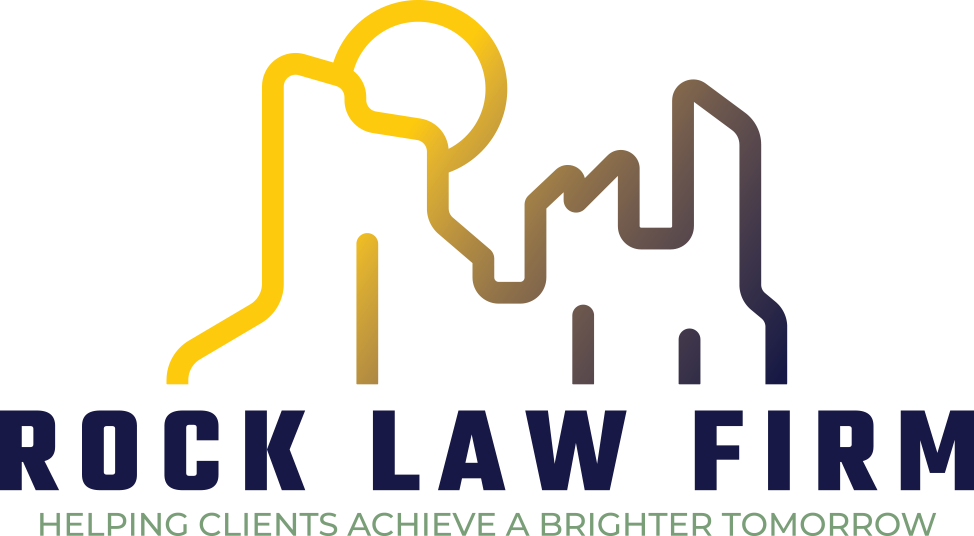
Protecting Your Assets in Phoenix Bankruptcy: What You Need to Understand
Rock Law Firm
Facing bankruptcy in Phoenix can be a challenging and stressful experience, but it doesn't have to mean losing everything you've worked hard for. Understanding how to protect your assets during the bankruptcy process is crucial for securing your financial future and achieving a fresh start. In this blog, we'll explore key strategies and considerations to help you safeguard your assets in a Phoenix bankruptcy.
Phoenix Bankruptcy: A Comprehensive Guide
Navigating the complex realm of bankruptcy can be overwhelming, but understanding your options is crucial to protecting your assets. In this comprehensive guide, we will explore the intricacies of Phoenix bankruptcy and provide you with the knowledge needed to make informed decisions. Whether you are an individual or a business owner, this guide will equip you with valuable insights into safeguarding what matters most to you.
When faced with the prospect of bankruptcy, it's important to understand that there are different types of bankruptcy filings available. The two most common types are Chapter 7 and Chapter 13. Chapter 7 bankruptcy, also known as liquidation bankruptcy, involves the sale of non-exempt assets to pay off debts. On the other hand, Chapter 13 bankruptcy allows for the development of a repayment plan over time, allowing debtors to retain their assets while making affordable payments.
It is crucial to consult with an experienced bankruptcy attorney who can assess your specific situation and guide you through the appropriate course of action. A skilled attorney will help you understand the eligibility requirements, exemptions, and potential consequences associated with each type of bankruptcy filing.
Types of Protected Assets
One concern individuals often have when considering bankruptcy is the fear of losing everything they own. However, it's essential to note that certain assets are protected during bankruptcy proceedings, ensuring individuals have a fresh start after resolving their financial burdens.
One key category of protected assets is known as "exempt property." These assets are shielded from creditors and cannot be seized or sold to satisfy outstanding debts. Exempt property varies depending on state laws, and Arizona has its own set of exemptions that apply specifically to Phoenix bankruptcy cases.
Additionally, exemptions may extend to retirement accounts, such as 401(k)s and IRAs, ensuring that individuals can maintain their savings for the future. Life insurance policies, public benefits like Social Security or unemployment compensation, and certain tools of trade or profession may also be protected under specific circumstances.
It's important to consult with a knowledgeable bankruptcy attorney who can guide you through the nuances of asset protection and ensure that you take full advantage of available exemptions. These professionals can evaluate your specific situation and help you understand how bankruptcy laws apply to your assets.
Triggers for Asset Protection
When facing bankruptcy in Phoenix, it is crucial to understand the triggers that may affect the protection of your assets. These triggers can significantly impact the outcome of your bankruptcy case and determine whether your assets will be safeguarded or potentially liquidated to satisfy your debts. Let's explore some common triggers that could potentially compromise asset protection.
One significant trigger is the timing of your bankruptcy filing. If you have recently transferred assets to others or engaged in fraudulent activities leading up to your bankruptcy, these actions may raise suspicions and trigger a closer examination by the bankruptcy court or trustee. It is important to note that bankruptcy laws have specific provisions aimed at preventing individuals from attempting to shield their assets by making fraudulent transfers.
Another trigger for asset protection considerations is non-exempt property. In a Chapter 7 bankruptcy, non-exempt assets can be sold off to repay creditors. Each state establishes its own set of exemptions that determine which assets are protected from liquidation. Understanding Arizona's exemptions and how they align with your assets is vital for safeguarding your property during bankruptcy proceedings.
Preliminary Information about Phoenix Bankruptcy
Before proceeding with a bankruptcy filing in Phoenix, it is important to gather crucial information and take certain preliminary steps. Having a comprehensive understanding of preliminary requirements can help ensure a smoother process and increase your chances of achieving a favorable outcome.
The first step is evaluating whether bankruptcy is the right option for you. Bankruptcy should be seen as a last resort after exploring alternative debt relief options. Analyze your financial situation, including income, assets, and debts, to assess whether bankruptcy is the most suitable course of action. Consulting with a knowledgeable bankruptcy attorney can provide valuable guidance tailored to your circumstances.
Once you have determined that bankruptcy is the necessary path forward, it becomes essential to choose the appropriate type of bankruptcy for your situation. In Phoenix, Chapter 7 and Chapter 13 bankruptcies are the most common options. Understanding the eligibility criteria and differences between these chapters will help you make an informed decision.
While Chapter 7 provides a quick discharge of eligible debts without requiring a repayment plan, Chapter 13 allows for a reorganization and repayment plan based on your income and ability to repay. Consider factors such as the types of debts you have, your income level, and your goal for seeking bankruptcy protection before making a choice.
To initiate the bankruptcy process, you will be required to complete several forms and provide detailed financial information. This includes disclosing all creditors, debts, assets, income, expenses, and recent financial transactions. Accuracy and completeness in these forms are crucial to ensuring the integrity of your filing and avoiding potential legal complications.
Creditors, Debts, and Credits in Arizona
It's crucial to have a thorough understanding of how creditors, debts, and credit work in Arizona when considering bankruptcy. Creditors are individuals or entities to whom you owe money, such as credit card companies, medical providers, or banks. Debts are the financial obligations you need to repay, including outstanding balances on loans or credit cards. On the other hand, credits represent the funds available to you on credit accounts.
In Arizona, bankruptcy laws govern the relationships between creditors and debtors. Understanding these laws is essential for navigating the bankruptcy process effectively. One key aspect to consider is that Arizona has specific exemptions designed to protect certain assets from being seized by creditors during bankruptcy proceedings.
To determine which type of bankruptcy path may be suitable for you, it's vital to assess your specific financial situation and the nature of your debts.
On the other hand, Chapter 13 bankruptcy may be more appropriate if you have steady income and wish to retain certain assets while repaying a portion of your debts over time through a court-approved repayment plan. This option can be particularly helpful for individuals facing foreclosure or seeking protection against creditor harassment.
Understanding the nuances of each bankruptcy path, as well as the exemptions and protections available in Arizona, is crucial to making informed decisions about safeguarding your assets and finding the most suitable debt relief solution for your unique circumstances.
The Chapter 7 and Chapter 13 Paths
When considering bankruptcy options, individuals often come across two primary paths: Chapter 7 and Chapter 13. Understanding the fundamental differences between these paths is essential for selecting the one that aligns best with your financial goals and needs.
Let's start with Chapter 7 bankruptcy. Known as "liquidation" bankruptcy, it involves the sale (liquidation) of non-exempt assets to repay creditors. However, it's important to note that certain assets are protected under Arizona's bankruptcy exemptions, allowing you to retain them. These exemptions may include your primary residence, car, retirement accounts, household goods, and other necessary items.
One significant advantage of Chapter 7 is its relatively quick process. In many cases, debtors can complete the entire process within a few months, allowing for a fresh start once their eligible debts have been discharged.
On the other hand, Chapter 13 bankruptcy follows a different approach that focuses on creating manageable repayment plans. Under this path, individuals with regular income develop a court-approved plan to repay a portion or all of their debts over a three- to five-year period. This option can be beneficial for those who want to protect valuable assets like homes or vehicles from being liquidated while still seeking a path towards debt relief.
It's important to note that not everyone qualifies for both types of bankruptcy. Eligibility criteria, such as income levels and debt amounts, differ between Chapter 7 and Chapter 13. Consulting with an experienced bankruptcy attorney can help assess your unique circumstances and determine the most suitable path for you.
Post-Bankruptcy: Discharging Debts and Safeguarding Assets
Once you have successfully navigated the bankruptcy process and received a discharge of your debts, it's crucial to understand how to safeguard your assets moving forward. While bankruptcy provides debt relief and a fresh start, it doesn't mean that you can't retain certain possessions or protect your assets. Let's explore some important considerations and strategies for post-bankruptcy life.
Discharging Debts: The primary goal of filing for bankruptcy is to obtain a discharge of your debts. This means that the court has officially released you from the legal obligation to repay them. It's important to note that not all types of debts can be discharged in bankruptcy. For example, student loans, certain tax obligations, and child support or alimony payments generally cannot be discharged. However, unsecured debts like credit card bills and medical expenses are often eligible for discharge.
To ensure the protection of your assets after bankruptcy, it's essential to familiarize yourself with the exemptions available in Arizona. Exemptions allow you to keep certain property even after filing for bankruptcy. They provide a shield against creditors' claims by designating specific items or amounts as exempt from liquidation.
It's important to consult with an experienced bankruptcy attorney who can guide you through the exemption process. They can help you understand the specific exemption limits and ensure that you take full advantage of the protections available to you.
Safeguarding your assets goes beyond exemptions. It also involves being proactive in financial management post-bankruptcy.
Financial Management: After bankruptcy, it's crucial to adopt responsible financial habits to prevent falling into debt again. This includes creating a budget, tracking expenses, and building an emergency fund. By tracking your spending and living within a budget, you can regain control of your finances and ensure long-term stability.
It's also important to reestablish your credit after bankruptcy. While bankruptcy does have an impact on your credit score initially, it doesn't mean that you won't be able to obtain credit in the future. Start by obtaining a secured credit card or becoming an authorized user on someone else's card to rebuild your credit history responsibly.
In conclusion, discharging debts through bankruptcy provides relief from overwhelming financial burdens. Safeguarding assets involves understanding exemptions, consulting with professionals, and adopting responsible financial habits. Remember, rebuilding after bankruptcy takes time and effort, but with the right approach, you can achieve a brighter financial future.
Why choose Rock Law Firm for bankruptcy consultation?
At Rock Law Firm, we understand the stress and uncertainty that overwhelming debt can bring. That's why we're committed to helping you explore your options, make informed decisions, and take the necessary steps to achieve a debt-free life. With our experienced bankruptcy attorneys by your side, you can regain control of your finances, protect your assets, and build a brighter future. Schedule a consultation today!
